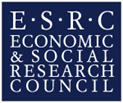This project, which is funded by the ESRC’s Secondary Data Analysis Initiative, uses existing data sources to investigate the psychological consequences of education.
Overview
People’s level of education has become an important indicator of their social status in contemporary Western societies. Salary, job status, and even people’s choice of marriage partners are increasingly based on level of education, rather than on more traditional status indicators such as the social class of one’s parents. An individual’s level of education is also easily ascertained; people can infer a stranger’s level of education simply by observing their behaviours and tastes. Education, therefore, is likely to be prominent across a wide variety of social situations and often used by people to understand their own and other’s positions in the social world. In other words, education is likely to provide a basis for a social identity.
Social identities are associated with numerous outcomes and processes. For example, people are motivated to perceive their social identities in a positive light, and, in particular, to positively compare their social identities against others. This appears to be for good reason: group members benefit from a range of positive outcomes if their group has a positive social identity, including increased well-being and decreased intergroup hostilities.
Constructing a positive social identity is, however, a hard task for people who have low levels of education for several reasons: (1) social identities are evaluated through social comparisons, so people with low levels of education often come away from social situations with a feeling of inferiority and a negative social identity; (2) education is seen to be based on individual ability, and so those with low levels of education are perceived as personally responsible for their low status; and (3) the defining attribute of those with low levels of education is the very thing that defines their low status. This lack of positive social identity is likely to decrease the well-being of those towards the bottom of the educational ladder, and to invoke thoughts and motives that predict a range of negative social attitudes, such as political disillusionment and intergroup hostility. To the extent that those with low levels of education do manage to form a positive social identity, however, we expect that they are likely to benefit from this in terms of well-being and positive social attitudes.
We therefore have two main hypotheses: (H1) Education will be positively related to personal well-being and negatively related to a range of societal attitudes; and (H2) this relationship will be moderated by the strength of educational social identities. We are investigating these hypotheses using existing survey data from the UK, mainly the British Social Attitudes, British Household Panel Survey, Understanding Society Survey, and the Citizenship Survey. We are also investigating our hypotheses internationally, using the International Social Survey Programme.

Our analyses fall into three strands, each of which is overviewed on its own page which you can access by following the links below:
The first strand investigates the effect of education on well-being and a range of social attitudes across the different surveys.
The second strand investigates the potential buffering effect of forming a social identity around one’s level of education.
The final strand investigates the influence of how survey questions are worded on our results, and includes a summary of some of our own additional research that helps to illuminate why this may be so.
The people working on this project are:
The project has been running since March 2013. You can keep up to date with its developments by following
@Cardiff_SDAI on Twitter Twitter.
Key References:
Bovens, M.A.P., and Wille, A. (2010). The education gap in political participation and its political consequences.Acta Politica, 45(4), 393–422.
Coenders, M., & Scheepers, P. (2003). The effect of education on nationalism and ethnic exclusionism: An international comparison. Political Psychology, 24, 313-343.
Jetten, J., Haslam, C., & Haslam, S. A. (Eds.). (2012). The social cure: Identity, health and well-being. East Sussex: Psychology Press
Stubager, R. (2009). Education-based group identity and consciousness in the authoritarian-libertarian value conflict. European Journal of Political Research, 48, 204-233.
Tajfel, H., & Turner, J. C. (1986). The social identity theory of intergroup behavior. In W. G. Austin & S. Worchel (Eds.), Psychology of intergroup relations (pp. 7-24). Chicago, IL: Nelson Hall.
Turner, J. C., Hogg, M. A., Oakes, P. J., Reicher, S. D., & Wetherell, M. S. (1987). Rediscovering the social group: A self-categorization theory. Oxford: Basil Blackwell.


